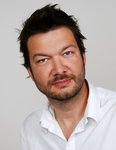These are the words of a Danish veteran diagnosed with PTSD after participating in international missions to Iraq, Bosnia and Kosovo among others. He is part of a growing group of Danish veterans who use amateur archaeology and the metal detector as a tool in the battle against PTSD and other injuries from deployment. With the metal detector in hand and in their search for Danefæ, they experience that they can once again contribute to society, become part of meaningful communities with other veterans and hobby archaeologists and find peace of mind.
VETEKTOR Buddy is a mentoring scheme that introduces veterans with PTSD or other post-deployment injuries to metal detector archaeology. Previous experience from the program has shown that the hobby contributes positively to the veterans' self-confidence and well-being. With the research and innovation project Veterans in Archaeology, we are therefore developing the mentoring scheme to give more veterans the opportunity to become metal detector archaeologists. At the same time, we investigate how the potential of archaeology to promote health can be realized more broadly in Denmark.
Engagement in archaeological activities has been shown to support the formation of human communities, contribute to health and well-being, and provide a framework for lifelong learning and building personal skills.
This is suggested by both recent research (see here, here and here) and experiences from British and American programs that engage veterans in archaeological practice (see here, here, here, here and here). The VETEKTOR Buddy Program builds on such initiatives, as well as other existing programs for veterans in Denmark and abroad that show how well-structured outdoor activities and mentoring relationships can reduce typical symptoms in veterans with mental health challenges (see for example here, here and here). The key factors in these programs, as in the VETEKTOR Buddy program, are outdoor life, physical exercise, social community, learning, focus and self-esteem - elements that are central to psychotherapy, rehabilitation and retention programs and to ensuring mental health in general (see here, here and here).
The unique potential of metal detector archaeology for vulnerable veterans lies in the similarities between metal detector searches and the military environment in both practical, organizational, social, technical and emotional terms.
Searching for archaeological finds, like the military, requires technical skill, discipline, accuracy and cooperation, and it is this convergence of competencies that programs like VETEKTOR Buddy build on. The programs provide a safe environment where veterans' existing skills become relevant and applicable again.
Of course, archaeology is about exploring and presenting the past. But archaeology can also actively contribute to solving one of today's major societal challenges: the rise in mental illness.
Internationally, the idea of culture's potential as part of the solution to this challenge is widely accepted, and in Denmark, art and culture are also gaining more and more ground in health promoting initiatives (see here). In the UK, archaeology and the heritage sector now play a central role in the social profile and projects of both universities and museums. However, the potential of archaeology is still rarely realized in Denmark. With Veterans in Archaeology, we are taking significant steps to investigate, document and support the potential of archaeology as a health promoter to be realized in Denmark.
Veterans in Archaeology has two main goals:
The project is run in two tracks with the following sub-goals:
| Research and innovation | Veteran effort: VETEKTOR BUDDY |
|
|
The project is supported by the Krogager Foundation.
It is carried out in collaboration between the Department of Archaeology and Cultural Heritage Studies at Aarhus University and Moesgård's Anthropological Analysis Unit (MANTRA).
The project additionally collaborates with Veteranstøtten, which is part of the Danmarks Veteraner, and Danish amateur archaeological associations and societies.

Andres Dobat
“Cultural heritage is something we share with each other and therefore archaeology is about community. But archaeology is also about outdoor life, physical work and creativity. That's why doing archaeology is good for us - especially when we have scars on our souls. As a researcher and idemand behind 'Veterans in Archaeology' and the 'VETEKTOR Buddy Program', it's my job to develop the project alongside the rest of the team and ensure that our experiences and research results can inform and inspire others”

Thomas Gemmerli Mikkelsen
"Veterans in Archaeology offers veterans a community with a connection to our past. A community based on skilled volunteers who can help alleviate or perhaps even reduce the psychological damage that veterans have incurred through their service. As a scientific assistant at Veterans in Archaeology, I support the scientific work from data collection and analysis to publication and dissemination. There is also some logistical work in the project, and I lend a hand when it's needed."

Christina Seehusen
“Veterans in Archaeology explores new ways of creating meaning, community and well-being through archaeology. This resonates with me, as I am always seeking innovative ways of applying and communicating archaeology—through fieldwork, research, and collaboration with dedicated volunteers. As a scientific assistant, I support the project’s development, outreach, operations, and research. I am thrilled to contribute to a project where our work enhances archaeology’s potential for both mental health and social responsibility.”